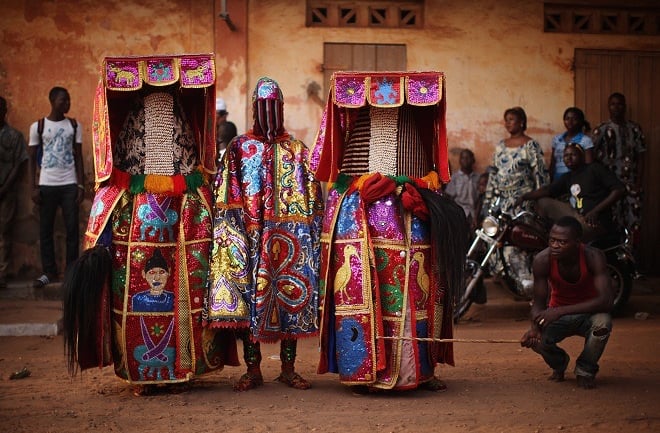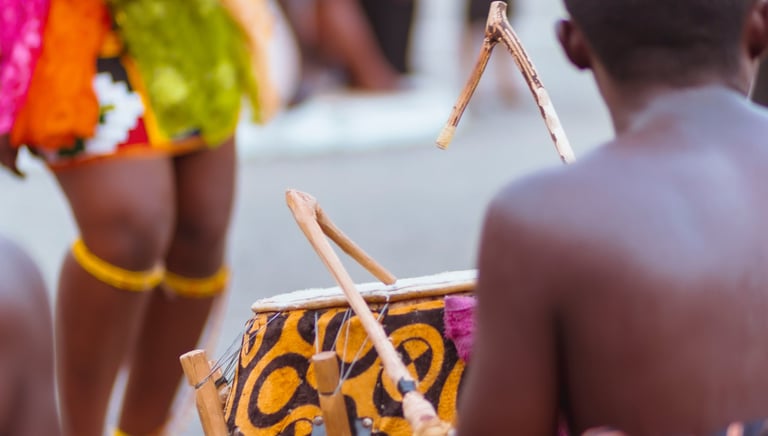
GHANA
GATEWAY TO WEST AFRICA
Welcome to Ghana known for its rich history, dynamic culture, and warm hospitality.
With a population of over 30 million people and ranked as the 4th safest country in Africa and 55th safest country in the world by the Global Peace Index, Ghana is a vibrant and diverse nation that beckons all to come and experience its unique culture, mouthwatering cuisine, vast natural landscapes, burgeoning contemporary creative revolutions and so much more.
If you're interested in your planning next story with SLL Journeys or just curious about this remarkable destination, here’s what you need to know about Ghana.
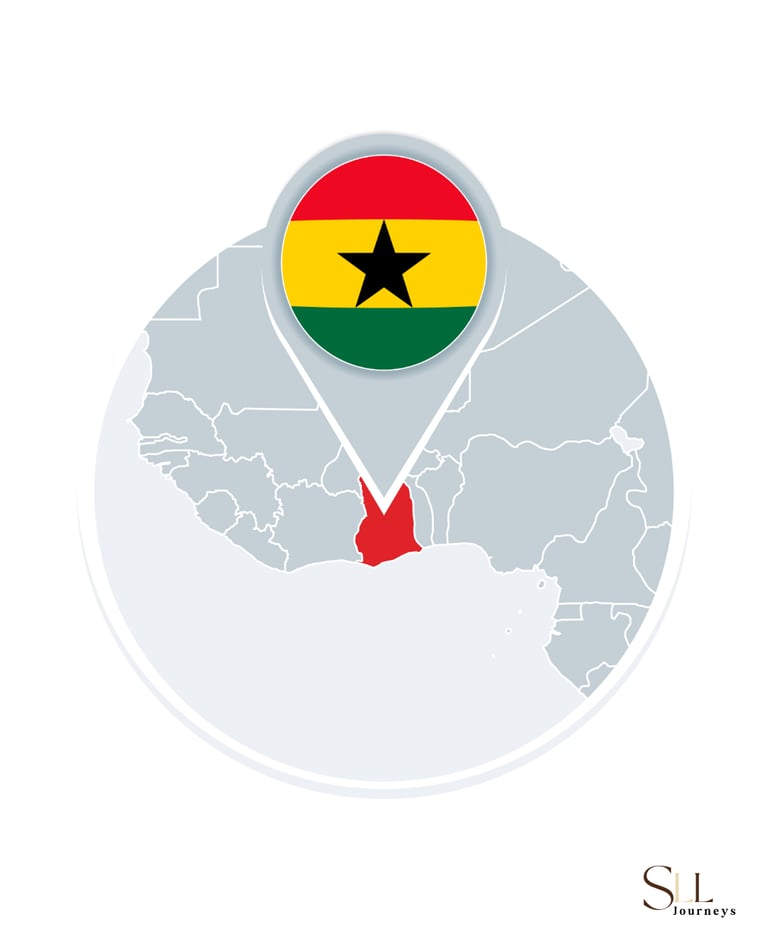

HISTORY
Ghana, formerly known as the Gold Coast, has a storied history that dates back to ancient empires such as the Ghana Empire, which flourished between the 6th and 13th centuries.
The region was a major trading hub for gold, ivory, and slaves, attracting European traders from Portugal, the Netherlands, and Britain from the 15th century onward.
In 1957, Ghana became the first sub-saharan African nation to gain independence from colonial rule, led by the visionary Dr. Osagyefo Kwame Nkrumah.

CULTURE
Ghanaian culture is diverse and deeply rooted in the traditions of over 100 ethnic groups, each contributing unique customs, music, dance, and art.
The Ashanti people, part of the larger Akan group, are known for their rich history and craftsmanship. They are famous for their gold jewelry, traditional kente cloth, and the intricate art of Adinkra symbols.
The Ashanti's cultural capital is Kumasi, where the Manhyia Palace serves as the residence of the Asantehene, the Ashanti king.
The Ashanti celebrate the Akwasidae festival every six weeks, honoring their ancestors and showcasing their royal heritage.


The Ewe people are primarily located in the Volta Region. They are known for their complex drumming and dance traditions, particularly the Agbadza dance, which is performed at social gatherings and festivals.
The Ewe are also skilled weavers, producing vibrant kente in the Agbozume area. Their rich oral traditions include stories that teach moral lessons and historical events. The Hogbetsotso Festival, celebrated in Anloga, marks their migration from Notsie in present-day Togo.
The Ga people reside mainly in the Greater Accra Region. They have a rich cultural heritage, characterized by the Homowo festival, which marks the end of a historic famine. The Ga are known for their elaborate funeral customs, which celebrate the life of the deceased with music, dance, and the creation of unique, custom-made coffins that reflect the individual's life or profession.
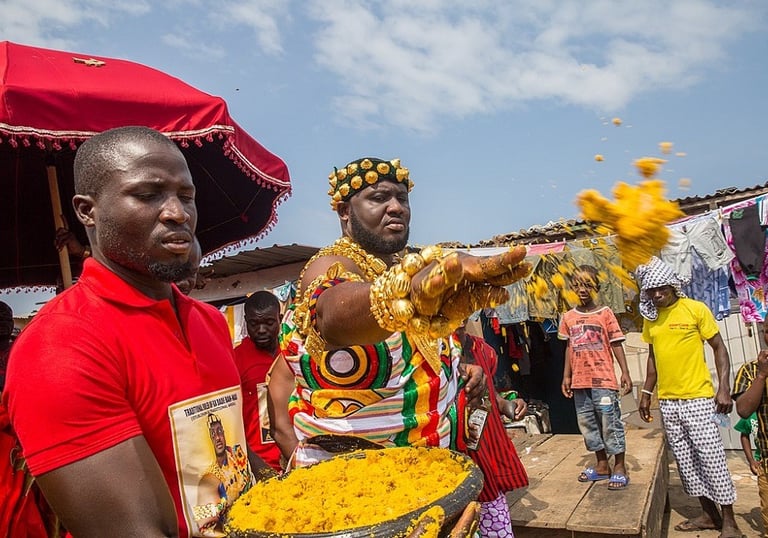

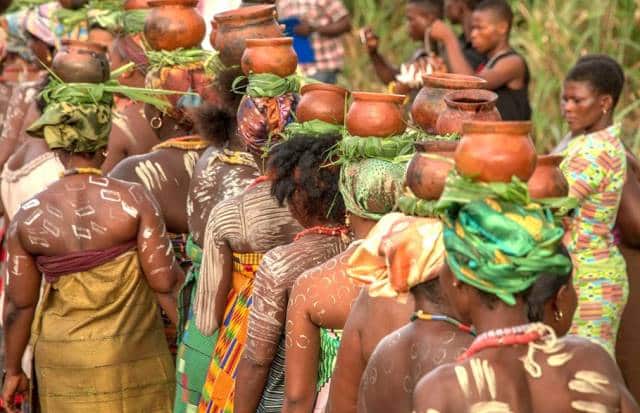

The Mole-Dagbon people, found in the Northern parts of Ghana, have a rich cultural heritage centered around the Kingdom of Dagbon.
They are renowned for their drumming traditions, particularly the use of the "Lunga" or talking drum, which conveys messages and historical narratives.
The Mole-Dagbons celebrate the Damba Festival, which marks the birth and naming of the Prophet Muhammad, featuring traditional drumming, dancing, and horse riding. The festival also pays homage to chieftaincy, a paradigm of traditional West African culture.
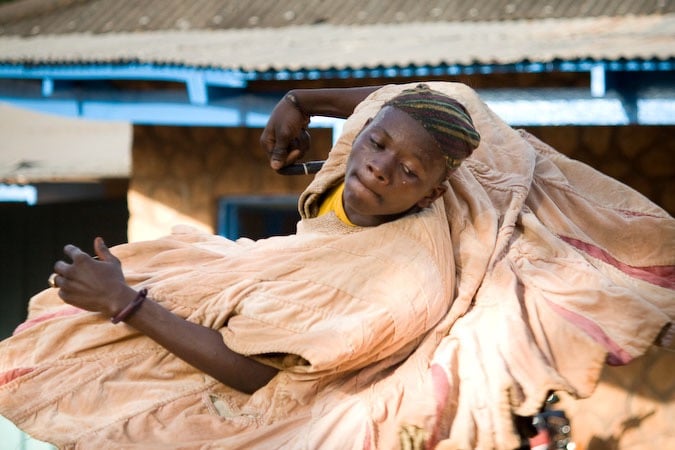

Ghana, Togo & Benin: 13 Days/12 Nights
A Ghanaian Heritage - 11 Days
Imagine yourself walking on the path enslaved Africans journeyed on; braving your fears 130 ft nestled above the tree canopy; receiving your new Ghanaian name amidst celebrations. Have a sense of what we can craft for you.
Language: English is the official language, making communication easy for most visitors. However, you will also hear various local languages such as Twi, Ga, Ewe and Pidgin English.
Currency: The official currency of Ghana is the Ghanaian Cedi (GHS). It's advisable to carry some local currency for small purchases, although credit and debit cards are widely accepted in urban areas. ATMs are available in major cities and towns. You can convert any currency here.
Climate: Ghana enjoys a tropical climate with two main seasons: the rainy season (April to October) and the dry season (November to March). Coastal areas tend to be humid, while the north experiences more arid conditions.
Health and Safety: We recommend that you take anti-malarial medication and ensure vaccinations for yellow fever are up to date. Tap water is not safe for drinking, so always opt for bottled water
Cuisine: Ghanaian food is hearty and flavorful, often featuring staple ingredients like maize, rice, yams, and plantains. Must-try dishes include jollof rice, banku, fufu, and kenkey, usually accompanied by soups or stews made from fish, meat, or vegetables. Continental and oriental dishes are also available in most restaurants across the country.
Transport: Ghana has a well-developed road network. Taxis, ride-hailing apps, tro-tros (minibuses), and buses are common modes of transport. Domestic flights connect major cities, and car rentals are available for more flexible travel. Kotoka International Airport (KIA-ACC) is the main airport for all international flights.
Etiquette: Ghanaians are known for their politeness and hospitality. Greeting with a handshake and using the right hand for exchanges is customary. Dressing modestly, especially in rural areas and during visits to religious sites, is appreciated.
Passport and Visa: Apart from ECOWAS nationals, most international travellers require a visa and a passport with at least 6 months validity to enter the country. You can check if you require a visa and other important information here.
IMPORTANT THINGS TO KNOW

DISCOVER MORE
Need more information on specific packages and services?
Share your contact information and a dedicated Guest Experience Director will get in touch within 24 hours.

